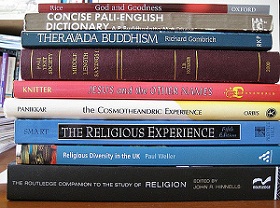Religious Discussion in the Workplace and Fair Employment Policy
Religious Discussion in the Workplace and Fair Employment Policy

Workplaces are multi-faith environments where employees’ religious beliefs can be expected to be voiced from time to time.
Although it has become accepted in many countries that employers should give their workers a degree of freedom to display their religious affiliation at work, employment disputes generated by inter-faith exchanges in the workplace – from debates to so-called ‘banter’ – can be expected to grow more and more contentious.
East London NHS Foundation Trust at an employment tribunal last year, insisting that all exchanges with her colleague were voluntary and consensual and that her own religious freedom was being violated – but it ruled that her employer had not discriminated against her.
The claimant then appealed to the Employment Appeal Tribunal (EAT), contending that the earlier tribunal had failed to give effect to Article 9 of the European Convention on Human Rights, which protects not only the right to hold, but also to manifest religious belief.
The EAT dismissed the appeal. After hearing the case, Judge Eady said in her judgment: “The claimant was not subjected to disciplinary process or sanction because she manifested her religious belief in voluntary and consensual exchanges with a colleague but because . . . she subjected a subordinate to unwanted and unwelcome conduct, going substantially beyond ‘religious discussion’, without regard to her own influential position. The treatment of which the claimant complained was because of, and related to, those inappropriate actions, not any legitimate manifestation of her belief.”
The ruling indicates that an employee who is disciplined for improperly imposing religious beliefs on a fellow member of staff may be said to have been disciplined, not because of the manifestation of religious belief itself, but because of the improper manner of manifesting it. The verdict reaffirmed that Ms Wasteney had gone beyond voluntary discussion and subjected her subordinate to “unwanted and unwelcome” attention.
Tensions surrounding religious expression at work
Employers Network for Equality & Inclusion chief executive Denise Keating said of the ruling in Wasteney v East London NHS Foundation Trust: “Employers can see this ruling as a reinforcement of the status quo, with all employees having the right to work in a non-threatening environment that respects their own unique beliefs without feeling pressure or hostility.”
However, a study last year by the Equality and Human Rights Commission found that religious employees feel under pressure to keep their beliefs and faith symbols hidden while at work. Conversely, atheists and humanists who responded to the survey said they had experienced unwanted conversion attempts and felt excluded from company events held in religious buildings.
Mark Hammond, CEO of the Equality and Human Rights Commission, said: “How the law deals with religion and other beliefs in work, in providing services and in public debate, has become a matter of considerable controversy . . . what came out strongly [from responses to the survey] was the widespread confusion about the law, leading to some resentment and tensions between groups and anxiety for employers who fear falling foul of what they see as complicated equality and human rights legislation.”
West London’s Leading Employment Law Experts
Our Employment team provides advice on the employment aspects of all major business decisions. For advice, contact a member of the team, call us on 01895 207892, or email your details to employment@ibblaw.co.uk. Alternatively please complete our online form.
